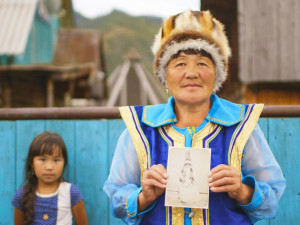The Day: Women should run the world, claims historian
Despite women’s liberation and the global rise of feminism, there is still a clear gender imbalance in politics. Which is odd since there is so much evidence that women would do it better.
If women were in charge, the refugee crisis in Europe might have played out a little differently, argued the historian Dr Amanda Foreman this weekend. ‘It’s not in the female make-up to stand there idly by while women and children die like flies on the beach.’ This, she said, is why Germany’s chancellor Angela Merkel has been most compassionate towards the desperate families seeking a new life, and has argued for a shared housing responsibility between nations.
Some people argue that Foreman’s vision of a more matriarchal society is closer than ever before. There is a growing number of women at the top of politics: along with Merkel in the EU, Hillary Clinton remains the favourite to win next year’s presidential election in the US, and Ellen Johnson Sirleaf has been one of West Africa’s most effective presidents since she was first elected in Liberia in 2006.
But these well-known women mask a clear gender imbalance in politics. Although the percentage of women in parliament has doubled over the last 20 years, they still make up just 22% of governments. Out of almost 200 countries, only 22 have female leaders.
Women have not always been unequal, as Foreman points out in her new BBC documentary series, The Ascent of Woman. Sumer— now modern-day Iraq — is often called the ‘cradle of civilisation’, and it was a society which treated women as equals. There, they could hold positions of power, study writing, and apply for divorce. It was only after Sargon the Great invaded in 2,300 BCE that women began to be restricted in society and excluded from leadership.
Thankfully, the last century has seen huge advancements for women in much of the developed world. In Britain during that time, they have gained equal legal rights to men, and anti-discrimination laws help to protect them from sexism in the workplace.
But modern feminists believe that the job is far from over. Without more women in power, they argue, issues such as childcare, equal pay and domestic abuse do not get the attention they deserve. This means that ordinary women continue to suffer.
Girl power
It’s not just a matter of ‘women’s issues’, some argue. Women are best equipped to lead in the 21st century. They are often more compassionate and collaborative, so they make better decisions. In a world which values peace over war, compromise and communication are two of the most important skills — and they are usually found in women.
Others object to such sweeping generalisations about either gender; there are good male leaders and bad female leaders. Why cause conflict by dividing people? In a truly equal world, governments would be chosen based on ideas and experience, regardless of gender.

